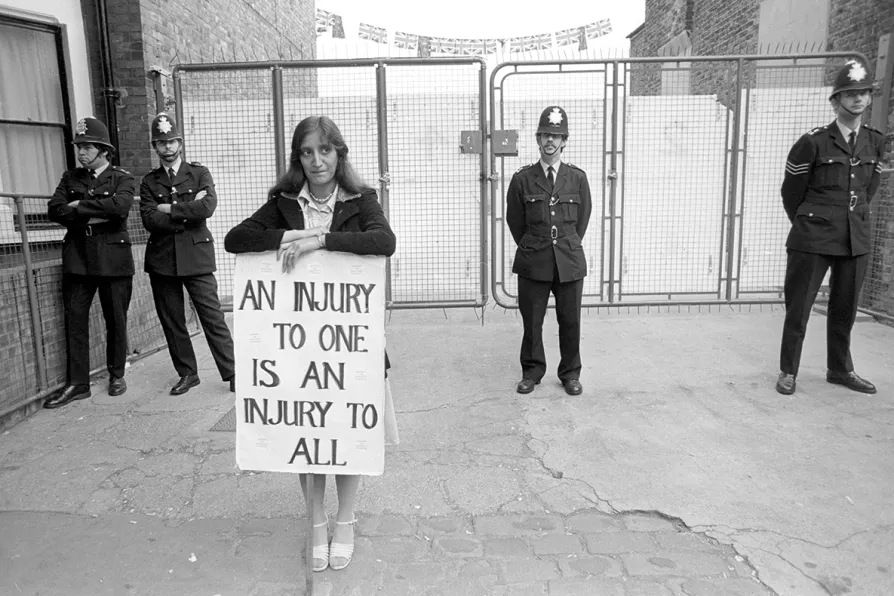RICHARD BURGON MP speaks to Ben Chacko about the Labour right’s complicity in the Mandelson scandal and the need for a total break with Starmerism if the party is to defeat Reform

 FAMOUR FIGHT: A lone picket is watched by police outside the entrance to the Grunwick film processing plant, July 1977
FAMOUR FIGHT: A lone picket is watched by police outside the entrance to the Grunwick film processing plant, July 1977
I HAVE been looking again through the inches-thick government papers on the 1976-78 Grunwick strike because they give clues to how Labour governments can respond to big strikes.
The papers show that the police carried out intense political surveillance of the strike. They filed reports full of both detail and absurd rumours — like their fears of trade unionists mobilising hit squads of female plumbers or schoolchildren to cause havoc — which Labour ministers accepted without question.
The Grunwick dispute started when a largely Asian workforce in a north London factory went on strike to support a sacked colleague.

A past confrontation permanently shaped the methods the state will use to protect employers against any claims by their employees, writes MATT WRACK, but unions are readying to face the challenge

Four decades on, the Wapping dispute stands as both a heroic act of resistance and a decisive moment in the long campaign to break trade union power. Lord JOHN HENDY KC looks back on the events of 1986

The Home Secretary’s recent letter suggests the Labour government may finally deliver on its nine-year manifesto commitment, writes KATE FLANNERY, but we must move quickly: as recently as 2024 Northumbria police destroyed miners’ strike documents

Hundreds travel to Birmingham to join ‘mega picket’ of striking refuse workers and supporters











